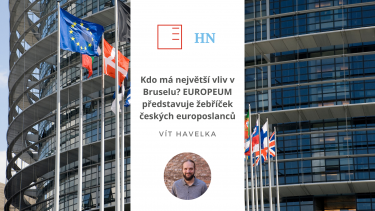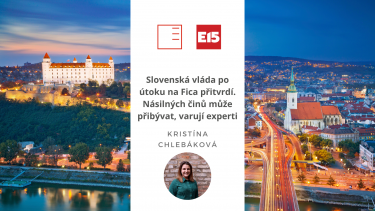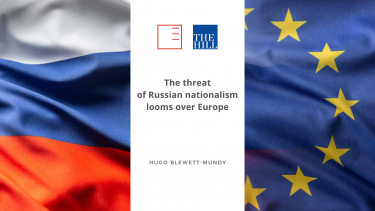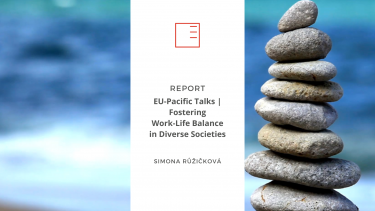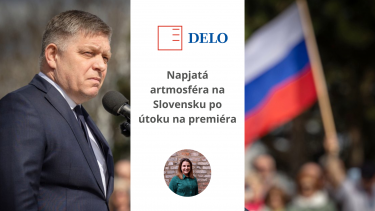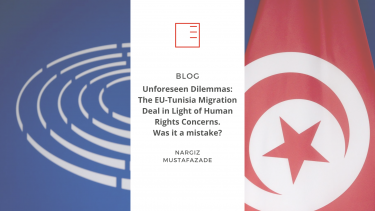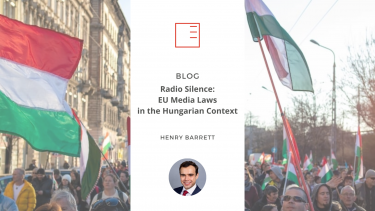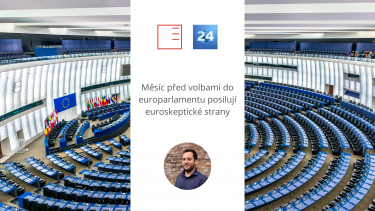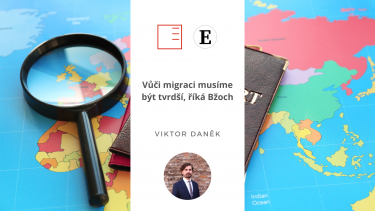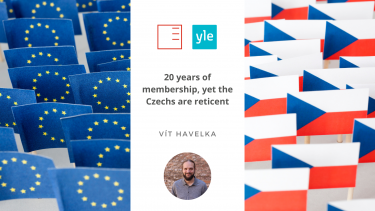Hospodářské noviny | Who has the biggest influence in Brussels? EUROPEUM presents the ranking of Czech MEPs
MEPs who are running for re-election in the upcoming European Parliament elections emphasize their influence in Brussels and Strasbourg, as well as their ability to shape public opinion in the Czech Republic. The actual extent was examined by EUROPEUM Institute, which compiled a ranking of the influence of Czech MEPs based on a survey of 100 Czech EU experts. Vít Havelka from EUROPEUM Institute discussed this ranking in Hospodářské noviny.
Show more
e15 | Slovak government toughens up after attack on Fico. Violent acts may increase, experts warn
Democracy and the rule of law in Slovakia are in even greater danger after last week's assassination of Prime Minister Robert Fico than before. According to the local media, there are fears that government politicians, led by Fico's interim deputy Robert Kaliňák, will try to take advantage of the current situation to introduce repressive measures against the opposition and the liberal media, which could also affect local business. Project manager of EUROPEUM Institute Kristína Chlebáková comments on the situation for e15.
Show moreThe Hill | The threat of Russian nationalism looms over Europe
The threat of Russian nationalism poses a serious danger to Europe, as emphasized by the EU's High Representative for Foreign Affairs and Security Policy Josep Borrell in his speech in April. Russia is attempting to reassert its influence, particularly through its war against Ukraine, which undermines European security. What impact does the reemergence of Russian nationalism, supported by China, have on European security, and how should the West respond to this geopolitical reality? In his commentary for the American news website The Hill, Hugo Blewett-Mundy, an external collaborator and research fellow at EUROPEUM Institute, addresses this topic.
Show moreREPORT | EU-Pacific Talks: Fostering Work-Life Balance in Diverse Societies
Another in the series of EU-Pacific talks dealt with fostering work-life balance in diverse societies. The debate focused on examining current demographic trends and their social consequences in high-income countries in Europe and Southeast Asia. The discussion also touched on social systems, flexible job opportunities, and the pressures women face when balancing work and private life.
Show moreDelo | Tense artmosphere in Slovakia after the attack on the Prime Minister
The Slovak political scene has unified and called for calming political tensions following the attack on Prime Minister Robert Fico. However, there are concerns that the governing parties might exploit this tragedy to strengthen their power. It is necessary for political leaders to act responsibly and consider long-term consequences, commented Kristína Chlebáková, Project Manager at Institute EUROPEUM, for the Slovenian newspaper Delo.
Show moreBLOG | Unforeseen Dilemmas: The EU-Tunisia Migration Deal in Light of Human Rights Concerns. Was it a mistake?
Tunisia has become the main exit point for asylum seekers and refugees, especially those from sub-Saharan Africa. The EU, faced with a surge in arrivals to Lampedusa, has bolstered its cooperation with Tunisia, signing a Memorandum of Understanding with President Kais Saied. However, questions arise over the EU's handling of human rights abuses in Tunisia, reminiscent of past agreements with Turkey. Nargiz Mustafazade, a trainee in the Brussels office of EUROPEUM Institute, writes about this topic in her blog.
Show moreBLOG | Radio Silence: EU Media Laws in the Hungarian Context
The European Union has passed major legislation to try and secure media freedom and independence in recent years. However, for the state of media pluralism in certain Member States, these efforts have come too late. In the Hungarian context, a pro-ruling party media ecosystem stands well-entrenched in the private and public media sector. Writes our researcher, Henry Barrett, a Fulbright-Schuman Grantee.
Show moreČT24 | Euroskeptic parties strengthen a month before the European Parliament elections
The European elections are about a month away. Czechs will vote for 21 of the 720 MEPs. This will be the first election since Brexit, the Covid-19 pandemic or the start of the Russian invasion of Ukraine. Turnout is expected to be higher than in the last elections five years ago, with right-wing and Eurosceptic parties strengthening. Žiga Faktor, deputy director and head of EUROPEUM Institute's Brussels office, described the possible reasons for daily broadcast of Czech TV.
Show more
Ekonomický deník | Migration problems are effectively eliminated by the new pact
The migration pact recently approved by the European Parliament brings a number of effective steps to prevent illegal migration, but it is certainly not a perfect anti-immigration tool, said Jaroslav Bžoch, candidate for MEP and vice-chair of the Foreign Affairs Committee and the European Affairs Committee of the Chamber of Deputies. Viktor Daněk, Deputy Director of EUROPEUM Institute, commented on the functioning of the EU Migration Pact and the opinion of the Czechs on this pact for Ekonomický deník.
Show moreYle | 20 years of membership, yet the Czechs are reticent
For 20 years, the Czechs have benefited billions of euros from EU membership, yet they are more reticent about the Union than others. Where does this opposition come from? How do the Czechs see the EU and their role in it? Comments Vít Havelka, Senior Research Fellow at EUROPEUM Institute for the Finnish public radio and TV.
Show more
Staroměstské náměstí 4/1
Prague 1 - Staré Město
110 00
tel.: +420 212 246 552
email: europeum@europeum.org
https://www.europeum.org
